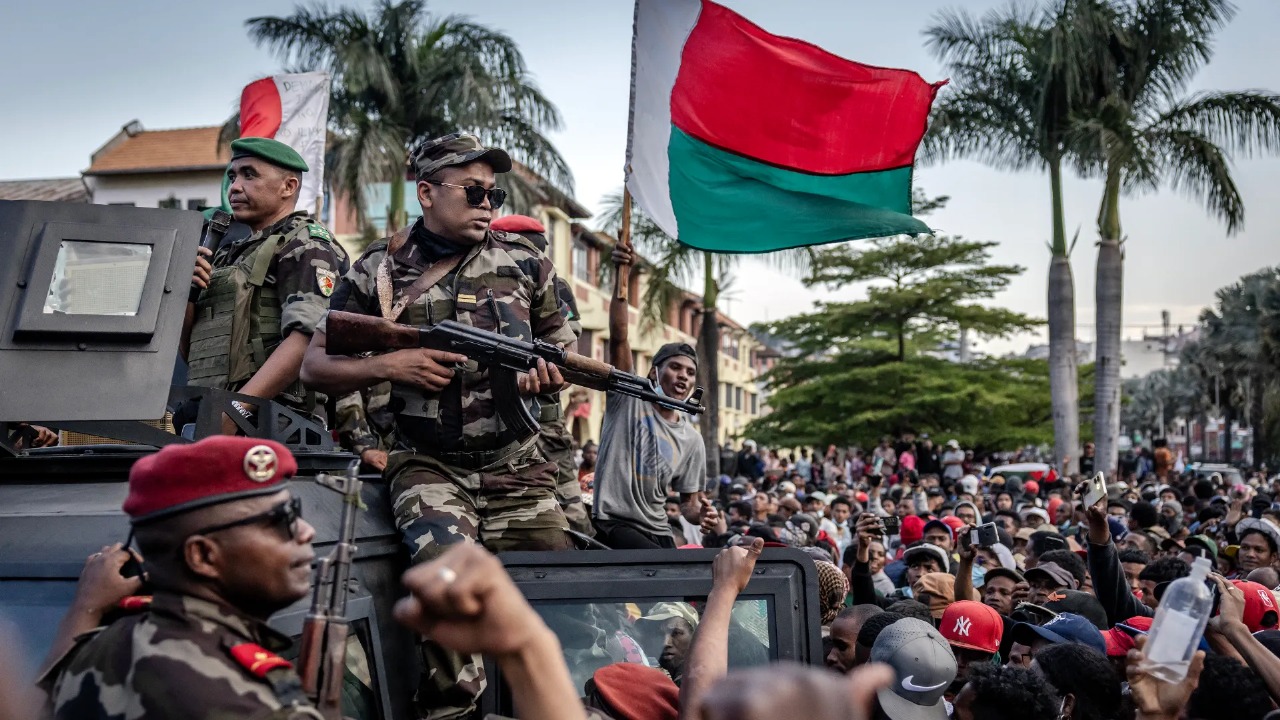Amid escalating protests and a mutiny by an elite military unit, Madagascar’s President Andry Rajoelina was exfiltrated by a French military plane following a secret deal with President Macron. The dramatic move comes as the president faces an “illegal and forceful” power grab amid nationwide unrest triggered by utility shortages.
Madagascar’s Political Crisis Escalates: President Rajoelina Airlifted by French Military
Madagascar’s political turmoil reached a critical point as President Andry Rajoelina was reportedly evacuated by a French military plane after reportedly striking a deal with France’s President Emmanuel Macron. The evacuation followed weeks of violent youth-led protests over power and water outages that escalated into calls for Rajoelina’s resignation and an ongoing mutiny involving the elite CAPSAT military unit.
Rajoelina’s government condemned what it described as an “illegal and forceful seizure of power” by mutinous soldiers now claiming control over all military forces. The CAPSAT unit, instrumental in Rajoelina’s rise to power in 2009, aligned with protesters, demanding his departure.
Notable Updates
The CAPSAT military unit declared control over Madagascar’s army and urged troops to defy orders to fire on protesters.
General Demosthene Pikulas was appointed by CAPSAT as the new Chief of Army Staff, challenging the existing government command.
The Senate removed its president, a Rajoelina ally, signaling cracks in political support amid widespread calls for stability and reform.
The United Nations reported at least 22 deaths and numerous injuries during protests, with Rajoelina disputing these figures.
France’s involvement, including the reported military evacuation, underscores the geopolitical dimensions of Madagascar’s crisis.
Major Takeaways
Madagascar faces one of its gravest political crises since independence, with military defection and popular revolt converging against Rajoelina’s rule.
The French military’s extraction of the president signals heightened international concern and intervention in Madagascar’s destabilizing environment.
Protests sparked by basic utility shortages have morphed into broad demands for political overhaul, accountability, and governance reforms.
The situation remains fluid and volatile, with national dialogue efforts underway but skepticism about immediate resolution.
This unfolding saga illustrates the fragile balance between governance, military loyalty, and popular mandate in Madagascar, with far-reaching implications for regional stability.
Sources: Al Jazeera, Reuters, DW, France24, ABC News, Times of India


